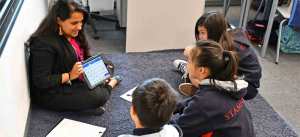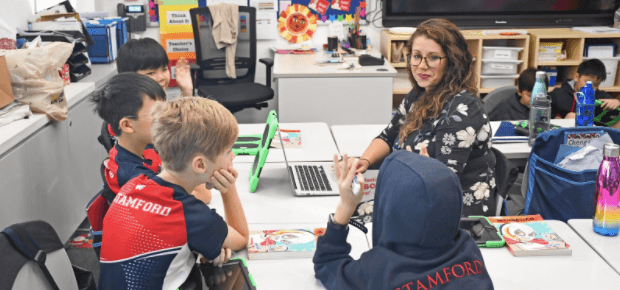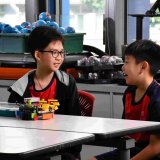Using Data to Improve Student Learning
Literacy is the backbone of education, and mastering reading skills from a young age is fundamental in achieving higher academic performance across disciplines. Therefore, it is essential that schools have a clear framework in place to develop students’ literacy and a system to measure success. At Stamford, our teachers are guided by a proven literacy program. They make use of leveled readers and the Fountas & Pinnell Benchmark Assessment System (BAS) to track and assess student reading comprehension along with reading fluency and accuracy, providing valuable data about our students’ reading level, their growth and how best to support them.
Meaningful data can open windows for reflection and improvement. Such an opportunity presented itself last year when Cognita announced a research partnership with the University College London (UCL) Institute of Education to research any chosen topics relevant to their schools. Stamford was chosen to be part of this partnership, and Ms. Rachel Goss, Ms. Trishna Harjani and Mr. Michael Galligan teamed up to research the effectiveness of addressing low reading growth students by using iterative recorded audio feedback methods, to explore both the degree and ways in which students engaged with the process.
Zooming In on Teacher-led Feedback
Why feedback? “One common change in 21st-century education is that the teacher is no longer seen as the bearer of all knowledge; there is more of a focus on reciprocal learning. Feedback is one way to create a dialogic approach to the ever-changing pedagogical system. Educators are moving away from simply giving grades and marking assessments to giving meaningful feedback. If given effectively, feedback helps students stay engaged and make meaning of their learning in the classroom so that they develop the skills to be life-long learners,” the team stated when presenting their findings at a Cognita conference in Thailand in December 2019.
“Knowing the importance of teacher-led feedback, we surveyed the needs of both our teachers and students at Stamford Hong Kong and found that feedback in reading was something that teachers and students were eager to develop. We believe this study will allow us to focus on an important area of growth for all students,” Ms. Goss and Ms. Harjani explained.

Dissecting Cognitive Process of Reading
The objective was set: to invoke the metacognitive awareness of reading strategies among children at about nine and ten years of age, with feedback as the means to bridge the growth gap.
With this challenging task at hand, the research team identified 35 students from grades 4 and 5 from all achievement levels as the target group of this study. They planned the study around a six-week reading unit, during which teachers would assign a reading benchmark assessment for students on RAZ-Kids, an application that the students were familiar with and used regularly. Students would audio record themselves reading an assigned passage, and teachers would then give feedback based on their audio recording in a small group setting, allowing students to provide peer feedback also. As a level playing field, the reading exercise included all grades 4 and 5 students and teachers, not just those in the target group.
The research team observed the target group of students in the small group setting and interviewed them to assess how well they were able to respond to the feedback given. Their reading levels were tested before and after the feedback process to track reading growth.
The Results
In the broader context of excellence in teaching and learning, the process was an examination of best practices in engaging students to become an agent of their own learning.
Although several of the originally predicted outcomes did not bear out with this study, and it did not conclusively prove the audio-assisted iterative feedback method has a significant positive impact on previously low-growth students, the team has observed first-hand how the overall process is a benefit to students, especially with their reading fluency.
“We noticed students applying their newly acquired learning strategies to other subjects and this has been encouraging. At the same time, by modeling giving feedback in a small group setting, we saw students acquiring the skills and language to provide peer feedback effectively. They felt empowered to provide and receive peer feedback, which is crucial in a world of collaboration.”






